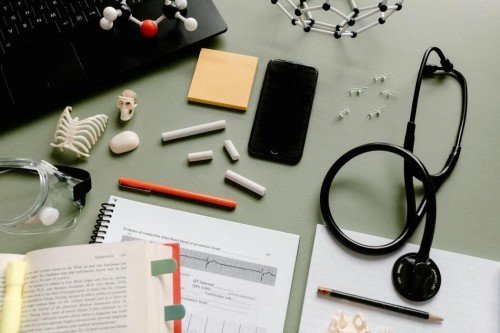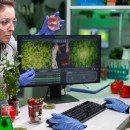
The biotechnology industry is experiencing unprecedented growth, driven by innovations in genetics, pharmaceuticals, personalized medicine, and healthcare technology. As biotech companies expand globally, they encounter a unique challenge: how to communicate complex scientific information accurately across multiple languages. The solution lies in professional medical translation, which ensures that research, regulatory documentation, and clinical information are consistently understood by international partners, healthcare professionals, and patients.
A reliable medical translation agency provides specialized expertise that goes beyond basic language conversion. These agencies ensure precision, regulatory compliance, and cultural appropriateness — all crucial elements in the highly technical and regulated biotech sector. By integrating translation services into their workflows, biotech organizations can accelerate research, expand into global markets, and improve patient outcomes.
The Importance of Accurate Translation in Biotech
Biotech relies on precise scientific communication. Small errors in terminology, clinical protocols, or research documentation can lead to costly mistakes, regulatory delays, or even compromise patient safety. Accurate translation is therefore not just a support function but a core component of successful biotech operations.
For example, clinical trial protocols, drug formulation instructions, genetic sequencing data, and laboratory manuals require exact interpretation. Even a minor misstep in translating molecular terms, dosage information, or technical processes could disrupt research integrity or delay product approval.
A medical translation agency ensures that all documentation is translated with precision, maintaining the integrity of the original content while making it accessible to international teams. This accuracy fosters confidence in research findings and supports seamless collaboration across borders.
Global Collaboration in Biotechnology
The biotech industry is inherently global. Research teams, laboratories, and pharmaceutical companies routinely collaborate across continents. Accurate translation enables these collaborations by ensuring that all stakeholders can access and understand the same data, methodologies, and conclusions.
Medical translation facilitates:
-
International Clinical Trials: Properly translated protocols and consent forms allow trials to be conducted safely and consistently in multiple countries.
-
Regulatory Compliance: Global agencies require documentation in their official language. Accurate translation ensures submissions meet regulatory standards and are approved without delays.
-
Scientific Publications: Translating research papers for international journals expands readership and facilitates knowledge exchange.
-
Training and Education: Laboratory manuals, training materials, and patient guides must be accurately translated to ensure proper use and understanding.
Through these services, biotech companies can operate efficiently on a global scale, enhancing collaboration and innovation.
The Role of a Medical Translation Agency
A professional medical translation agency provides more than just language services. They combine linguistic expertise with scientific knowledge to deliver accurate, compliant, and culturally sensitive translations. Key benefits include:
-
Accuracy: Translators understand technical biotech terminology, ensuring precise interpretation of research data, clinical information, and regulatory documents.
-
Consistency: Agencies maintain uniform terminology across multiple documents, reducing confusion and supporting professional credibility.
-
Regulatory Compliance: Translation agencies ensure that documents comply with international healthcare regulations, helping companies avoid costly errors or delays.
-
Cultural Relevance: Experts adapt content to suit the cultural and linguistic context of the target audience, improving understanding and engagement.
By leveraging a specialized agency, biotech companies can focus on innovation while trusting that their communication needs are handled with professional precision.
Technology Enhancing Medical Translation
Modern technology complements human expertise in translation. AI-assisted translation tools, translation memory systems, and terminology databases help manage large volumes of content efficiently, particularly in fast-moving sectors like biotechnology.
However, human oversight is essential for medical and scientific content. Complex terminology, nuanced clinical instructions, and culturally sensitive information require professional translators to ensure accuracy and reliability. By combining advanced technology with expert translation, biotech organizations can achieve faster turnaround times without compromising quality.
Case Studies: Medical Translation in Biotech
-
Vaccine Development: A biotech company conducting clinical trials across Europe and Asia required translation of trial protocols, patient consent forms, and research data. A medical translation agency ensured accuracy and regulatory compliance, enabling seamless multinational collaboration.
-
Genetic Research Collaboration: Researchers working on gene-editing technology relied on translated scientific papers and laboratory manuals to coordinate efforts. Accurate translation facilitated knowledge sharing and ensured experimental consistency.
-
Medical Device Launch: A biotech company introducing a new diagnostic device internationally needed instruction manuals, marketing materials, and regulatory documentation translated accurately. Professional translation enabled market entry and compliance with local regulations.
Strategic Advantages of Medical Translation
Incorporating professional translation into biotech operations provides strategic benefits:
-
Faster Global Expansion: Multilingual communication allows companies to enter new markets confidently and efficiently.
-
Enhanced Credibility: Accurate and professional translation builds trust with healthcare providers, regulatory bodies, and international partners.
-
Reduced Risk: Proper translation minimizes the risk of miscommunication, legal challenges, or patient safety incidents.
-
Improved Collaboration: Clear communication fosters productive relationships between research teams, investors, and healthcare professionals worldwide.
These advantages make medical translation a critical component of successful biotech strategies.
The Future of Biotech and Medical Translation
As biotechnology continues to evolve, the demand for accurate translation will grow. Emerging trends include:
-
AI-Powered Translation Tools: Integration of AI with human oversight will improve efficiency while maintaining accuracy.
-
Global Data Sharing: Multilingual datasets for genomics, clinical trials, and pharmaceutical research will facilitate faster scientific discoveries.
-
Patient-Centric Communication: Translated patient information will empower global populations with accessible healthcare knowledge.
-
International Collaboration: Seamless translation services will support research and development projects spanning multiple countries and languages.
By embracing these trends, biotech companies can ensure that innovation is communicated effectively, no matter the language or market.
Conclusion
Biotechnology thrives on precision, innovation, and global collaboration. Medical translation and professional medical translation agencies play a vital role in ensuring that complex scientific and clinical information is accurately conveyed across languages and cultures.
From clinical trials and regulatory submissions to research publications and patient materials, specialized translation services enable biotech companies to expand globally, enhance credibility, and foster international collaboration. By integrating professional translation into their operations, biotech organizations not only safeguard the integrity of their data but also accelerate innovation and improve patient outcomes worldwide. In a world where science is increasingly global, medical translation is more than a support service — it is a key driver of success in biotechnology.
Recent Posts

What Biotech Breakthroughs Are...

How Editing and Proofreading S...

AI Tools Transforming How Biot...

Soluzioni Biotecnologiche Sost...

L’intelligence Artificielle ...

Las Tecnologías de Edición G...
Share it.
Categories
Links
© Copyright 2022 Emotiv Life Sciences


